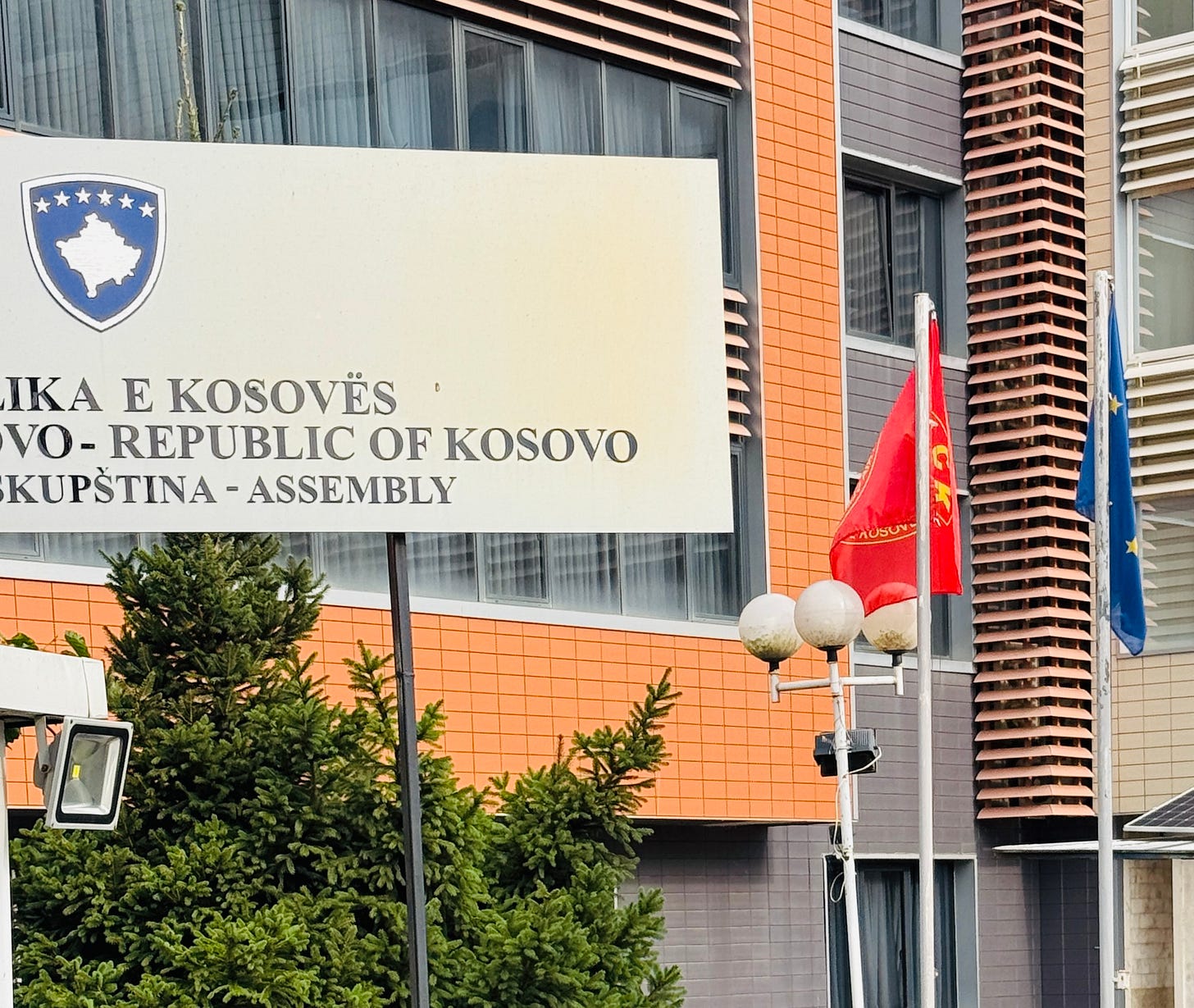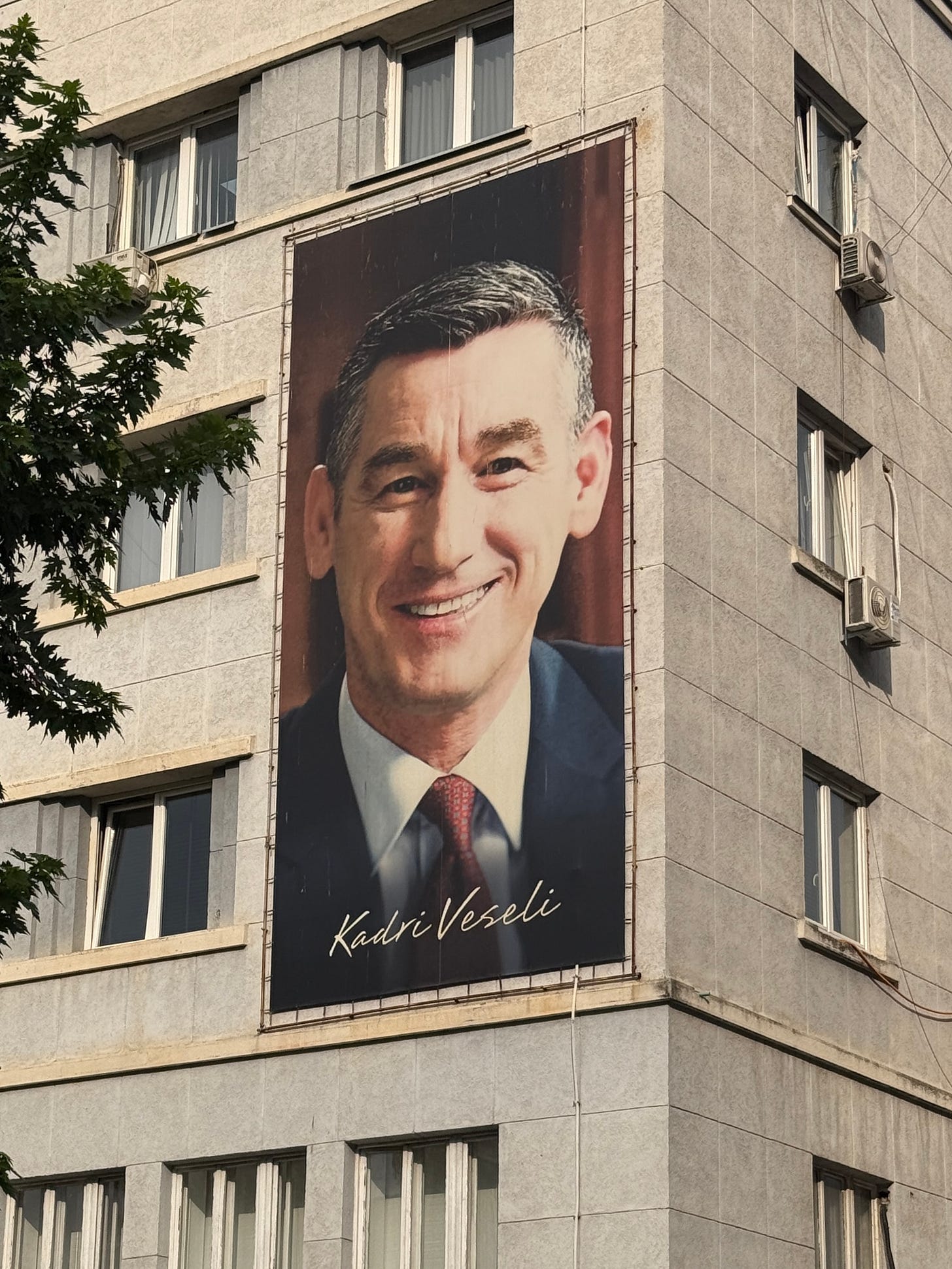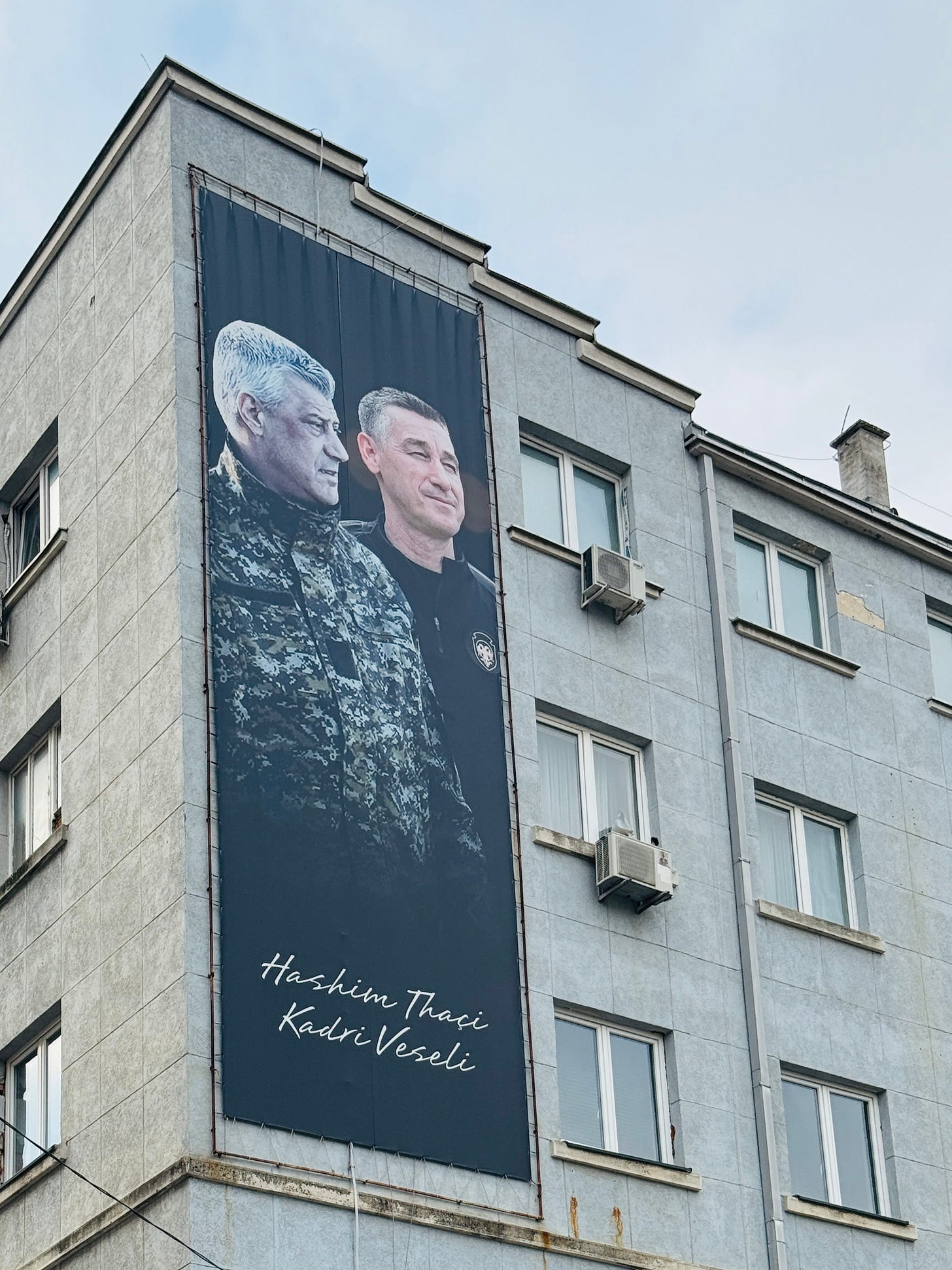What if a country's heroes are war criminals?
#383
Friend of Democracy,
On my journey through the Balkans, I have stopped in Pristina, the capital of Kosovo.
What I saw with amazement:
At the Kosovo assembly's entrance, the UÇK flag is next to that of the European Union (see photo above).
The UÇK (Ushtria Çlirimtare e Kosovës or Kosovo Liberation Army, short KLA) was an ethnic Albanian paramilitary organisation that fought for Kosovo’s independence from Serbia during the late 1990s, primarily through armed resistance against Yugoslav and Serbian forces.
Their leaders are still heroes in Kosovo - and they are on trial at the Kosovo Specialist Chambers in The Hague.
The two most well-known defendants:
- Kadri Veseli, a former UÇK intelligence commander who turned high‑ranking Kosovar politician—Speaker of Parliament and PDK leader (PDK is a centre-right political party in Kosovo, founded in 1999 by former leaders of the UÇK. It has since been one of the country’s dominant parties, promoting nationalism, economic liberalism, and Euro-Atlantic integration).
- Hashim Thaçi, former UÇK leader and also former President of Kosovo. He resigned as President to face charges in Den Hague, pleaded not guilty, and has remained in custody since.
Both men face war crimes charges like murder, enforced disappearances, and torture committed during the war, mainly in 1998 and 1999.
The trial in Den Hague opened in April 2023.
As of June 2025, 152 victims are participating in the proceedings, having been admitted over the course of multiple submissions. The Prosecutors closed their case on 15 April 2025. The Defence case is scheduled to begin on 15 September 2025.
So, the verdicts are pending, the presumption of innocence applies, and it's not the UÇK as an entire organisation that's on trial, but only individual perpetrators for their crimes. And yet, when I look at the numerous hero worship of those accused in The Hague in the public sphere of Pristina, it seems that the process of coming to terms with Kosovo's recent history is just beginning.
See you in Democracy,
Johannes Eber




